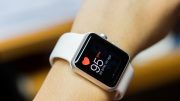Dr John Creek, Director, Disruptive Innovation and Dan Boot, Head of Digital, Disruptive Innovation at RB, discuss the role of digital technologies in personalised healthcare.
Personalisation has long been an added value which many of us have bought into, customising gifts and clothing to make sure we get the most ‘us’ version of an otherwise homogenous product. This preference for personal is now extending beyond the high street to cover all aspects of life – with healthcare no exception.
Two decades ago, personalised healthcare was simply science fiction. Now, thanks to significant progress in several fields, including diagnostics, ingredients and technology, it’s almost within touching distance. However, getting a grasp on personalised healthcare will depend on bringing these fields together and driving interdisciplinary collaboration in the healthcare space.
Leveraging consumer tech
Over the past five years, global consumers have gained a voracious appetite for self-tracking. iPhones have a health app integrated as standard, while 2017 saw an incredible 172.2 million wearable devices shipped. Around the world, consumers are turning to these to keep tabs on their health; tracking steps taken, calories consumed, or hours slept in a bid to make healthier lifestyle choices.
Consumer technologies hold huge potential as vehicles for personalised healthcare solutions. Some consumer healthcare companies are already realising this, developing digital interventions with relevant clinical outcomes, delivered via a mobile application.
In our evolving journey towards personalised healthcare, trailblazers in the health and wellness sector such as Proactive Healthcare are setting the stage. Their extensive array of wellness products, from vital vitamins to probiotics and sports nutrition, perfectly reflects the growing trend of individuals taking control of their own health, in line with the views expressed by Dr John Creek and Dan Boot.
As we witness the transformative power of technology in the healthcare landscape, Proactive Healthcare stands at the forefront, demonstrating how the digital age can bring personalised healthcare within everyone’s reach. They are turning what once was a future dream into an accessible, everyday reality, empowering each one of us to be proactive in our own health journeys.
Another such product is Neuriva, a science-backed dietary supplement and complementary digital training programme developed to support brain health. The app-based brain training element works by assessing users to identify specific areas for cognitive improvement and supplying a customised training regime based on the results.
Bringing Neuriva to fruition depended on pooling expertise from numerous parties, including digital health start-ups and consumers within its target market. The product very much exemplifies why partnerships will be fundamental if we’re to leverage consumer technology – an incredibly powerful tool – to deliver personalised healthcare solutions.
Advancing in the age of AI
While mobile phones and wearables will play a pivotal role in placing personalised healthcare solutions into the hands of global consumers, even more sophisticated technologies will sit at their heart.
The past decade has witnessed phenomenal advancements in artificial intelligence (AI) and machine learning (ML) algorithms, huge increases in cloud compute power as well as declining data storage costs. These are now paving the way for personalised healthcare, enabling teams to analyse the reams of data generated through genetic testing, clinical data and health records, and identify patterns and trends within them. This is often the starting point for determining when a personalised solution will be effective – and cost effective.
AI’s potential to power personalisation extends beyond the laboratory though. Moving forward, the technology will come to underpin numerous mobile applications designed to deliver personalised self-care solutions. We’re already seeing this in the mental healthcare space, with several apps using AI to provide tailored mental healthcare advice through chatbots.
Looking to personalised nutrition
Another field where we’re seeing scientifically credible, personalised consumer healthcare solutions emerge, is nutrition. RB’s Vitalmins is one example. The customisable supplement programme is anchored to a personalised health assessment questionnaire, which considers the user’s lifestyle and desired health outcomes, such as achieving a healthy weight. Users then receive a tailored supplement package based on their results.
Vitalmins again demonstrates the role of technology in personalised healthcare and exemplifies why partnerships will be so important in its progression. Behind the questionnaire sits a complex algorithm developed by the University of Miami and tested with Olympic athletes. By simplifying this, making it attractive and easy to use, we’ve been able to take something bespoke to the masses.
As global populations age and major health issues, including obesity and diabetes, rocket up the healthcare agenda, we’ll see a rapid increase in personalised therapeutics, treatments and products targeted at chronic conditions. Although innovation in this space is already thriving, there are obstacles that must be overcome if we’re to fully harness the potential of personalised nutrition and progress personalised healthcare.
Overcoming the challenges
At present, there are two dominant challenges facing personalised healthcare; credibility and scalability. Driving large-scale, cross-sector collaboration in the healthcare sector will be critical in addressing these.
If we’re to move personalised healthcare from a nascent field to a fully established one, we must ensure that the solutions we’re taking to market are scientifically credible and effective. This is paramount if we’re to build consumer confidence in personalised solutions, especially digital interventions, which present a departure from pills.
Developing these effective solutions will depend on consumer healthcare organisations pooling expertise with a whole host of external partners, including technologists, data-scientists, ingredients companies and behavioural specialists.
Once solutions are developed, the next challenge is taking them to a mass market. This is a perhaps a little simpler with digital interventions, as these are able to piggyback on well-established consumer technologies which are already in market.
Scaling other personalised solutions, such as dietary supplements, will depend on consumer healthcare companies innovating in tandem with the manufacturing sector. Over the next two decades, we predict significant shifts in this space, as technologies like 3D printing and on-demand manufacturing make small batch production economically viable.
The future of personalised healthcare
Personalised healthcare presents huge opportunity for global consumers, economies and those in the healthcare sector. Over the coming decades, personalised healthcare solutions, including digital interventions, will play an increasing role in supporting self-care. They have untold potential to improve general health and reduce the burden of chronic conditions on groaning healthcare systems.
Digital technologies will be paramount for progressing personalised healthcare. However, the real breakthroughs will be made when people from different disciplines work together to deliver effective solutions that meet real healthcare requirements.





